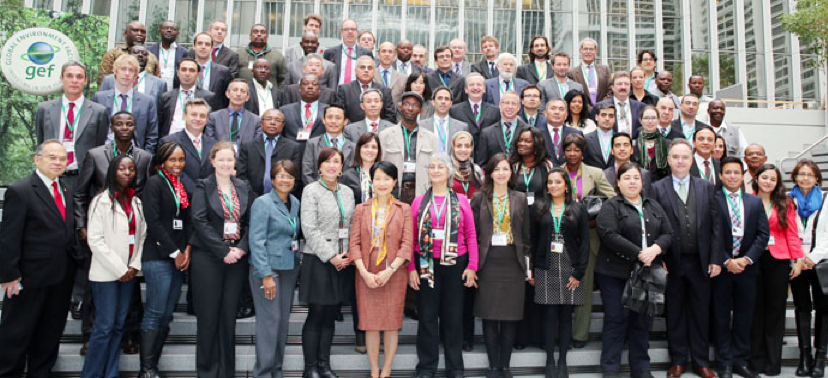The 45th meeting of the Global Environment Facility (GEF) Council considered, inter alia: the progress report on the pilot accreditation of GEF Project Agencies; the mid-term evaluation of the System for Transparent Allocation of Resources (STAR); the mid-term evaluation of the National Portfolio Formulation Exercise (NPFE); an update on the GEF-6 replenishment; a review of GEF Agencies on their application of environmental and social safeguards and gender mainstreaming; and an update on the development of the GEF 2020 strategy.
The GEF Council also approved a Work Program amounting to US$259.84 million.
 7 November 2013: The 45th meeting of the Global Environment Facility (GEF) Council considered, inter alia: the progress report on the pilot accreditation of GEF Project Agencies; the mid-term evaluation of the System for Transparent Allocation of Resources (STAR); the mid-term evaluation of the National Portfolio Formulation Exercise (NPFE); an update on the GEF-6 replenishment; a review of GEF Agencies on their application of environmental and social safeguards and gender mainstreaming; and an update on the development of the GEF 2020 strategy. The GEF Council also approved a Work Program amounting to US$259.84 million.
7 November 2013: The 45th meeting of the Global Environment Facility (GEF) Council considered, inter alia: the progress report on the pilot accreditation of GEF Project Agencies; the mid-term evaluation of the System for Transparent Allocation of Resources (STAR); the mid-term evaluation of the National Portfolio Formulation Exercise (NPFE); an update on the GEF-6 replenishment; a review of GEF Agencies on their application of environmental and social safeguards and gender mainstreaming; and an update on the development of the GEF 2020 strategy. The GEF Council also approved a Work Program amounting to US$259.84 million.
The Council meeting convened in Washington, DC, US, from 5-7 November 2013, at World Bank headquarters. The three-day meeting brought together approximately 250 representatives of governments, international organizations and civil society organizations (CSOs). The meeting included the 15th meeting of the Council for the Least Developed Countries Fund (LDCF) and Special Climate Change Fund (SCCF), and it was preceded by a CSO Consultation and an evening reception on 4 November.
The approved Work Program includes nine country biodiversity projects, 15 country climate change projects, five regional international waters projects, four country land degradation projects, six multi-focal projects, one regional project on persistent organic pollutants, two country projects on persistent organic pollutants, and five multifocal area sub-projects under previously approved Programs. The approved projects include: the conservation of Ecuadorian amphibian diversity and sustainable use of its genetic resources; the promotion of sustainable rural energy technologies for household and productive uses in Ethiopia; the achievement of low carbon growth in cities through sustainable urban systems management in Thailand; support for implementation of the Cubango-Okavango River Basin Strategic Action Programme in Angola, Botswana and Namibia; community-based sustainable dryland forest management in the Gambia; polychlorinated biphenyls (PCB) reduction in Cameroon through the use of local expertise and the development of national capacities; and conservation of big cats in the Russian Federation, which is the first project approved for the WWF-US as a GEF Project Agency.
The Council participated in a video conference dialogue with Achim Steiner, Executive Director, UN Environment Programme (UNEP). The Executive Secretaries of the Convention on Biological Diversity (CBD), UN Convention to Combat Desertification (UNCCD) and the Stockholm Convention on Persistent Organic Pollutants (Stockholm Convention) also engaged in a discussion on synergies with the GEF Council, and the Council received an update on the newest convention, the Minamata Convention on Mercury.
The LDCF/SCCF Council convened for its 15th meeting on 7 November. It adopted decisions on the progress report for the LDCF/SCCF, and the Work Program for the SCCF. During the meeting, Finland announced a pledge of US$4.94 million for the LDCF, and US$2.56 million for the SCCF. [IISD RS reporting from 45th meeting of the GEF Council] [GEF webpage for Council documents]